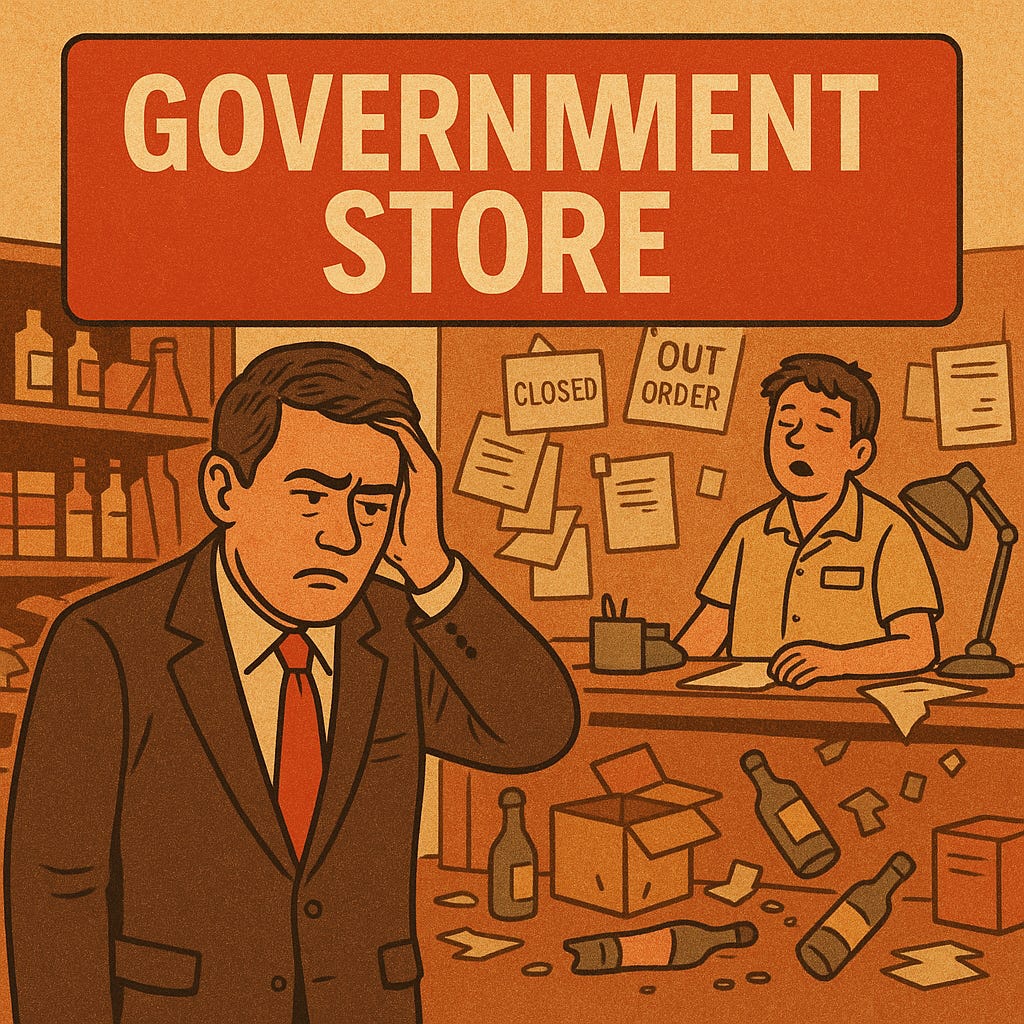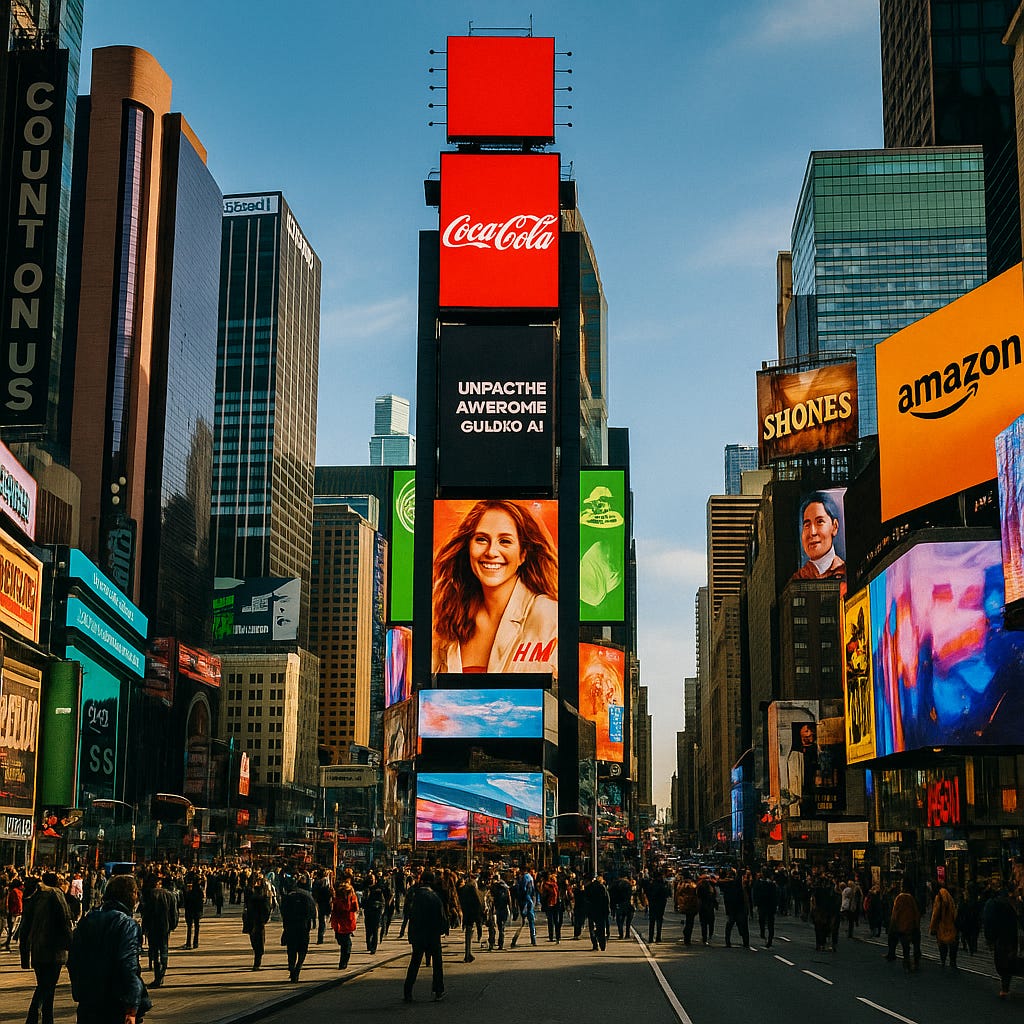Democratic Socialists of America define their ideology bluntly:
“Capitalism is a system designed by the owning class to exploit the rest of us for their own profit. We must replace it with democratic socialism, a system where ordinary people have a real voice in our workplaces, neighbourhoods, and society…”.
This paints a picture of a bygone era – an age when a small aristocracy controlled capital and everyone else toiled with no say. But in 2025, that notion of an exclusive “owning class” is outdated. The barriers to starting a business have fallen to historic lows. With the democratization of technology – especially AI – anyone can become an “owner” or entrepreneur today.
Consider that last year Americans launched a record 5.5 million new businesses. From solo consultants to e-commerce startups, ordinary people are seizing opportunities at unprecedented levels. Generative AI tools now handle tasks from writing marketing copy to coding basic apps, slashing the cost and expertise needed to launch a venture. As one tech entrepreneur put it, “AI is making entrepreneurship more accessible by lowering the costs and technical barriers traditionally associated with starting a business.” A solo marketer or salesperson can now leverage AI for research, content creation, even customer service – things that used to require whole teams. In short, the playing field has never been more level.
Historically, the U.S. proved how economic opportunity explodes when old aristocratic barriers are removed. Unlike Europe’s rigid class system, America never had a hereditary nobility to hog wealth – and it became the world’s largest economy by 1890 through open-for-all enterprise. As the 19th-century observer Alexis de Tocqueville noted, in America “nearly all the tastes and habits born from [American] equality naturally drive men towards commerce and industry.” In the 1830s almost everyone – rich or poor – was hustling to make a profit, whereas in Europe the upper crust disdained “mere money-making.”
Fast-forward to today: we are all, in a sense, the “owning class.” The vast majority of successful business people did not inherit their fortunes; they built them. One study found 69% of the Forbes 400 richest Americans started their own companies, rather than simply inheriting wealth or positions. As the researchers concluded, “the way to strike it rich these days is through one’s own efforts, and increasingly less by inheriting old money.” In other words, the free market has spread ownership to the many, not just the few.
A Threat to Today’s Entrepreneurs
Given this reality, the DSA’s class-war rhetoric is not just antiquated – it’s dangerous to today’s rainmakers: the marketers, sellers, and entrepreneurs in the trenches growing our economy. Why? Because policies born from the belief that “owners” are the enemy will inevitably hurt you, the up-and-coming business builder. When democratic socialists gain power, they push for measures that at first glance sound “pro-people” but ultimately stifle entrepreneurship at every level. Let’s break down a few, in practical terms below.
Sky-High Taxes and an Exodus of Business
A favourite slogan is “tax the rich and major corporations” to pay for expansive social programs. But in practice, “soaking the rich” means punishing success and investment – and often chasing it away. We’ve seen this movie before: high-tax cities and states watch wealth and talent head for the exits. For instance, New York already struggles with people and companies moving to lower-tax states. Tax data shows that for every 1 high-earning household moving into New York, 3 are moving out – while Florida (with no state income tax) gains 2 new high-income families for every 1 it loses. Those departing aren’t just some paper millionaires; they’re founders, investors and job-creators taking their capital and jobs with them. Cato Institute notes that many finance and tech entrepreneurs left New York in recent years and helped spur a booming finance industry in places like West Palm Beach. This is real money and opportunity fleeing.
Now imagine this trend on steroids if NYC elects a mayor who jacks up business taxes dramatically. In fact, one of Zohran Mamdani’s defeated primary opponents warned that under his democratic socialist platform, NYC businesses would face double the tax rate of New Jersey, triple that of Connecticut, and five times that of Florida – causing an “exodus of businesses and jobs” that would “crash our city.” Rainmakers can’t make it rain in an economic drought. If clients, investors, and big spenders skip town, your own wallet will feel it – fewer deals, shrinking budgets, slower career growth.
Aggressive Wage and Labour Mandates
Democratic socialists often champion steep minimum wage hikes and union mandates. Mamdani, for example, is pushing for a $30/hour minimum wage – literally double New York’s current $15 floor. Yes, we’d all love higher wages, but a sudden $30 mandate is a shock wave to any small business’s finances. If you’ve ever run a marketing agency, restaurant, or startup, you know payroll is usually the biggest expense. Doubling it overnight means one of two things: massive price increases or cutting staff. In real terms, that could mean your favourite local café drastically raising coffee prices (driving away customers), or simply hiring fewer baristas. It could mean a marketing firm decides not to bring on that junior account exec (you), because their support staff now costs twice as much. There’s a reason even some progressive cities phase in wage increases gradually – moving too far, too fast can backfire. Rainmakers thrive in growing businesses; when businesses are squeezed by mandates, growth stalls.
Price Controls and Market Distortions
To address affordability, socialist-leaning leaders often reach for blunt tools like rent control or price caps. Mamdani touts a plan to freeze residential rents citywide. For tenants, that sounds like an immediate relief. But beware the long-term fallout. Economists across the spectrum have found that strict rent controls might help current renters briefly, but they “decrease affordability, fuel gentrification, and create negative spillovers” in the long run. Why? Because capping prices discourages new housing investments and upkeep. Landlords withdraw rentals from the market (since they can’t make a profit), developers build elsewhere, and the housing supply dwindles.
The endgame is often higher rents and fewer options citywide – the opposite of the intended effect. For entrepreneurs and professionals, that means higher living costs and difficulty attracting talent to an increasingly housing-scarce city. A real-world example: when Massachusetts abolished rent control in Cambridge in 1994, property values rebounded and neighbourhood conditions improved, suggesting how much rent caps had held the market back. Freezing prices sounds simple and just, but it often leads to stagnation – a deadly environment for any kind of business.
Government-Run Businesses
Democratic socialists don’t just want to tax and regulate private enterprise – they often prefer to replace it. Mamdani proposes city-owned grocery stores to provide cheap food. Again, on the surface, “no-profit” public supermarkets sound like they’d help struggling families. But as a businessperson, ask yourself: where has the government proven nimbler or more efficient than the private sector in retail? Experience from around the world shows that shops run by government tend to be inefficient and often plagued with corruption. Without the pressures of competition and profit, service quality and innovation suffer. Plus, a taxpayer-funded grocery network undercutting private grocers could drive many neighbourhood bodegas and supermarkets (many minority- or immigrant-owned) out of business.
For us marketers and sellers, it’s painful to imagine a dynamic consumer market being overtaken by soviet-style bureaucrat stores. Who will innovate new products or campaigns in that environment? Actual example: In the 1970s-80s Britain had state-run industries (not groceries but telecoms, etc.) notorious for poor customer service and lack of innovation, until they were privatized. The lesson: when the state competes with you unfairly or takes over, entrepreneurs lose.
Anti-Business Attitude = Less Opportunity
Beyond specific policies, democratic socialism breeds a cultural mindset that views profit-seeking as suspect. That’s demoralizing for rainmakers. Building a great product or closing big sales is hard enough without being vilified for “exploiting” someone. If the mayor and city officials adopt an adversarial stance toward “the owning class,” it will trickle down into every permit process, every contract negotiation, every attempt to launch something new.
Already we saw a high-profile case in 2019: Amazon wanted to open a major campus in Queens, creating an estimated 25,000 jobs, but local socialist-leaning activists and politicians (spearheaded by DSA-aligned Rep. A. Ocasio-Cortez) celebrated killing the deal. The result? No Amazon campus, no new jobs or opportunities – a huge loss for the city’s economy. As Governor Cuomo lamented, it was a “lost economic opportunity”. To rainmakers, that was a baffling self-inflicted wound. It sent a chilling message to other growing companies: perhaps NYC doesn’t want you here. We simply can’t afford that kind of hostility if we want a vibrant business community that creates jobs (and yes, tax revenue to fund public services!).
Stay Vigilant
Let’s be very clear: I’m pro-growth, pro-opportunity. As marketers and entrepreneurs, we flourish when bold ideas can become businesses, when companies compete to win customers, and when success is rewarded, not penalised. “Democratic socialism” might be well-intentioned in aiming to help the little guy, but its actual prescriptions would hobble the very engines of prosperity that lift people up. When I hear candidates like Zohran Mamdani vow to freeze rents, jack up taxes, and put City Hall in the grocery business, I see red flags for everyone trying to make a living in NYC.
This isn’t abstract theory or an academic debate. This is about your ability to launch that new product or campaign next year. It’s about whether the client with the big budget decides to expand in New York or in Florida. It’s about the commissions you earn, the jobs you can create, the innovations you can bring to market. Stifling policies don’t just hurt “fat cat billionaires.” They hurt the scrappy startup founder, the independent consultant, the ambitious marketing manager – the rainmakers grinding every day to generate revenue. In other words, you and me.
As I write this, I’m also stepping into a new role – today is my first day as President of the American Marketing Association New York City Chapter. That means I’m invested in the city’s marketing and business community. (To be absolutely clear, these views are my own, not the AMA’s.) From this perspective, I feel a responsibility to sound the alarm.
New York City, through the agencies of Madison Avenue, practically invented the modern marketing industry — from creative brand-building to mass-market advertising. That legacy is why so many build careers in NYC and why we must protect its pro-business spirit.
New York rainmakers must stay alert to ideologies that sound populist but carry poison pills for anyone with entrepreneurial drive. This city became an economic powerhouse by embracing innovation and enterprise, not by demonizing “owners” and erecting hurdles in their path. If we want to keep that edge – to keep winning – we can’t let democratic socialism sneak in.
Bottom line: Protect your pocket. Don’t be swayed by rhetoric about an “owning class” that supposedly needs to be taken down. That myth belongs in history books. In today’s reality, we are all potential owners, and policies that punish ownership will punish us all. Stay informed, get involved, and push back against proposals that threaten to throttle the hustle and grind that built your business.
The rainmakers drive this city forward – let’s make sure we keep it that way, free and thriving.
Make it rain, KG











